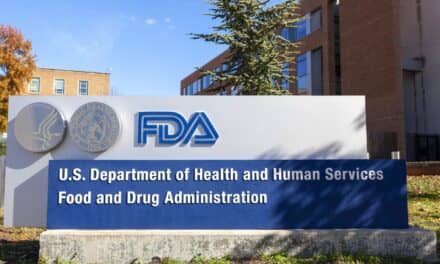Summary: SOPHiA GENETICS and Unilabs have partnered to implement the SOPHiA DDM Platform to test for Homologous Recombination Deficiency (HRD) in solid tumors, particularly in ovarian cancer.
Takeaways:
- The collaboration between SOPHiA GENETICS and Unilabs underscores the importance of advanced technologies in the field of precision medicine.
- HRD testing plays a crucial role in predicting tumor response to certain treatment options, especially in ovarian cancer where HRD is prevalent.
- The platform’s AI-based approach aims to provide expedited and accurate analysis of next-generation sequencing (NGS) data, enabling Unilabs to deliver fast and precise diagnostics to patients.
SOPHiA GENETICS, a cloud-native software company and a provider in data-driven medicine, announced that Unilabs, a European-based diagnostic provider, is live on the SOPHiA DDM Platform.
Unilabs will use SOPHiA GENETICS’ technology to test for HRD-status in solid tumors and provide expedited analysis across its network in Switzerland.
What Is Unilabs?
Founded in 1987 in Switzerland, Unilabs conducts more than 221 million tests annually across its laboratories, imaging centers, and collection centers. The implementation of SOPHiA GENETICS’ technology across Switzerland will support the company’s ability to offer leading testing and analysis to its customer base and help further the use of precision medicine, the company says.
“SOPHiA GENETICS’ AI-based technology is at the forefront of where precision medicine is going – blending science and technology to deliver the best possible outcomes for patients. The addition of the SOPHiA GENETICS Platform to our suite of offerings will support our effort to deliver the fastest and most accurate diagnostics to our patients,” says Mattia Schmid, PhD, FAMH, Scientific Manager, Unilabs.
Further reading: Sophia Genetics Expands Suite of Liquid Biopsy Offerings
Homologous Recombination Deficiency Testing
HRD is caused by a cell’s impaired ability to repair DNA double-stranded breaks through the homologous recombination repair (HRR) pathway and is the most prevalent alteration in ovarian cancer(1) with approximately half of all newly diagnosed patients having HRD-positive tumors(2).
HRD in a tumor is an important predictor of tumor response to certain treatment options, however, to detect HRD, researchers often use next-generation sequencing (NGS), which can produce a complex data set that is time-intensive and costly to analyze. The SOPHiA DD Platform uses Artificial Intelligence (AI) and machine learning with patented technologies to analyze and interpret raw NGS data, providing reliable and fast HRD results that can help guide treatment planning.
“As a diagnostics leader, Unilabs is responsible for delivering fast and accurate testing results to patients throughout Europe each year, and our team at SOPHiA GENETICS is proud to be one of the technology leaders helping to enable these results,” says Kevin Puylaert, Managing Director, EMEA, SOPHiA GENETICS. “Identifying HRD-status is key to facilitating the use of precision medicine among ovarian cancer patients worldwide. The implementation of the SOPHiA DDM Platform will support Unilabs as it continues to offer the very best in testing and diagnostics to all of Europe.”
References:




